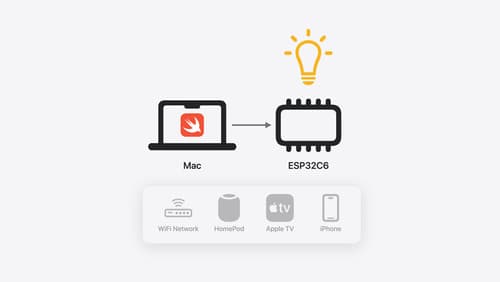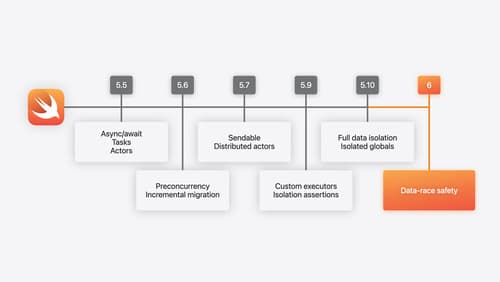Can i use objective-c still?
Asked on 2024-08-04
1 search
Yes, you can still use Objective-C. While Apple has been promoting Swift as the preferred language for app development due to its modern features, safety, and performance, Objective-C remains supported. For instance, even though the Foundation framework has been rewritten in Swift, Objective-C applications still benefit from these improvements (What’s new in Swift).
Additionally, Swift's interoperability with C and Objective-C allows you to incrementally adopt Swift in your existing projects, making it possible to use both languages together (Platforms State of the Union). This means you can continue to use Objective-C while taking advantage of Swift's features where appropriate.

Go small with Embedded Swift
Embedded Swift brings the safety and expressivity of Swift to constrained environments. Explore how Embedded Swift runs on a variety of microcontrollers through a demonstration using an off-the-shelf Matter device. Learn how the Embedded Swift subset packs the benefits of Swift into a tiny footprint with no runtime, and discover plenty of resources to start your own Embedded Swift adventure.

Platforms State of the Union
Discover the newest advancements on Apple platforms.

What’s new in Swift
Join us for an update on Swift. We’ll briefly go through a history of Swift over the past decade, and show you how the community has grown through workgroups, expanded the package ecosystem, and increased platform support. We’ll introduce you to a new language mode that achieves data-race safety by default, and a language subset that lets you run Swift on highly constrained systems. We’ll also explore some language updates including noncopyable types, typed throws, and improved C++ interoperability.
